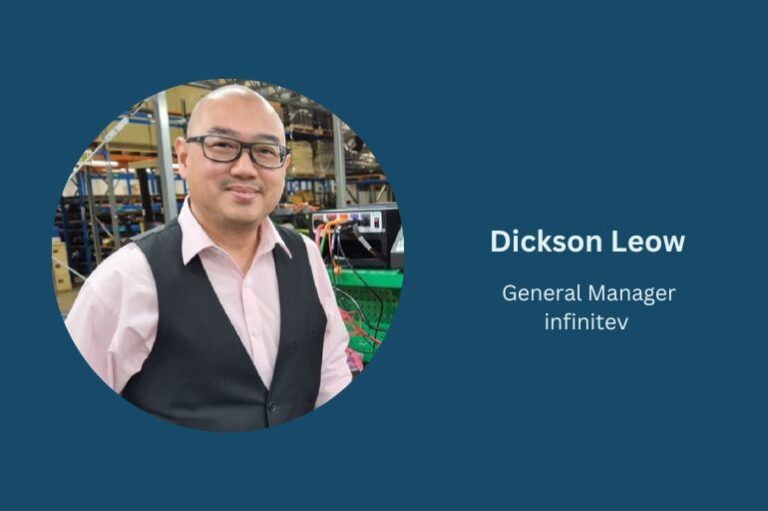In this Fleet News Group podcast, host Caroline Falls talks with Dickson Leow, General Manager at infinitev, which saves spent electric vehicle batteries from landfill.
The interview was just a day after Leow presented at the inaugural Australian Battery Recycling and Manufacturing Summit where he had the opportunity to talk about what infinitev are doing.
“Essentially Infinitev is trying to envision a world without waste, where the EV battery is being used for multiple applications. We’re focusing on the reuse, repurpose and recycle requirements of that battery,” said Leow, adding the business model is based on circular economy principles. “We’re trying to mitigate this linear usage of make, waste, discard with a circular focus.”
Leow said the summit gave participants an opportunity to gather, and get a sense of what is happening in various sectors and states.
One of the key themes was about education and the need to impart the right information about lithium batteries.
“It’s important we know exactly what a lithium battery is,” said Leow, adding people generally appreciate they are widely used in mobile phones and laptops.
“Once we get into the larger electric vehicle batteries it’s a different perspective — how do we recycle? How do we transport? How do we repurpose or reuse? And how do we ensure that these are done safely? The last thing we want is to have one of these bad incidents, giving the whole industry a bad name. That’s why that summit was held to ensure that everyone’s on the same page and to share commonalities and understanding with each other. And it was a very successful event, I must say,” said Leow.
Other key themes discussed covered investment and available grants and the opportunities the industry has and the pitfalls to avoid.
Leow said EV battery developments including lithium phosphate and nickel cobalt types present the market with challenges.
“When we talk about the recycling sector, with all the changes with the different batteries and chemistry, how can we make it viable and make it work?”
Leow has more than 25 years experience in the automotive world, including in vehicle engineering, safety and regulation. He was formerly head of future mobility at the Australian Road Research Board, and was ambassador for Toyota Australia in fuel cell vehicle technology. He’s also helped draft international standards for future transport, including autonomous vehicles.
Meanwhile, Leow is keen on watching worldwide developments in transport technology. A favourite topic is data management and how it can help with planning future transport infrastructure.
“There are all the opportunities with data mining and understanding different information, how we can create a sustainable ecosystem, not just for the vehicle, and the technology, but for the infrastructure — if there’s a lot of vehicles on the road, it’s a time to put in a new transport system, a public transport system; to put in a charging system that is remote or wireless.
“Those are what I’m keeping an eye on — all this opportunity, and also, because of the work I’m doing with electric vehicles, with batteries, about creating opportunities to have energy loading onto the infrastructure.”
And so it was also a circular discussion starting with and ending on the reuse of the EV battery. As a rule of thumb a battery is efficient in a vehicle until it is functioning at 80 percent of original capacity. Then it can be repurposed and used for example, to store renewable energy for the home or commercial applications and to feed power into the grid.
“These are all technologies, they’re all intertwined. And that’s why if we have a different lens in terms of mobility, it gives a different flavour to how we see this holistic gambit of all this technology that’s available to us here in Australia and across the world.”






